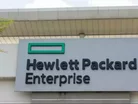Data is 'the new currency' for driving manufacturing innovation

According to IT giant Hewlett Packard, manufacturers facing the ever-present threat of faster, more agile market competitors can grow revenues by utilising their data to better understand customers. This allows them to keep their processes responsive and transition into effective business models more easily, creating integrated end-to-end operations across the value chain.
Martin Rainer, Vice President and Head of Manufacturing Industry at Hewlett Packard Enterprise, commented: “We believe that data-driven organisations drive superior business outcomes, and harnessing data – regardless of its source and scale – can empower a company. Data, if analysed properly, is a goldmine. A data-driven organisation not only streamlines manufacturing operations through data sharing, but also automates the processing of unstructured data so any impending issues can be identified such as those affecting plant performance or customer satisfaction.”
Successfully navigating this difficult business landscape is just one of the topics to be discussed at the upcoming Manufacturing Forum 2016, an event hosted by the Economist Events in Coventry, UK on June 16th 2016. The event will analyse the importance of enterprise data integration during a panel discussion lead by Curtis Carson, Head of Research and Technology, Industrial Strategy and Systems at Airbus. The inaugural event also brings together a number of leading manufacturers including Rolls Royce, ABB, Hilti, and Hewlett Packard Enterprise, all of which are actively engaged in the quest to digitise and transform the global manufacturing industry.
The advice from Hewlett Packard Enterprise is for manufacturing businesses to consider the ways in which data can help them remain innovative and ahead of a challenging marketplace, and in what is an increasingly competitive market. The business believes that digital technologies are going to prove instrumental, enabling manufacturers to add value successfully across the entire value chain, managing finite resources, while simultaneously reducing risk. This includes machines that collect, curate and transfer information between devices, as well as the communication and co-ordination of manufacturing data.

